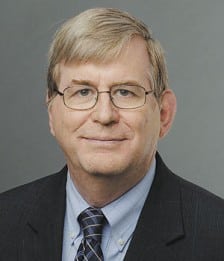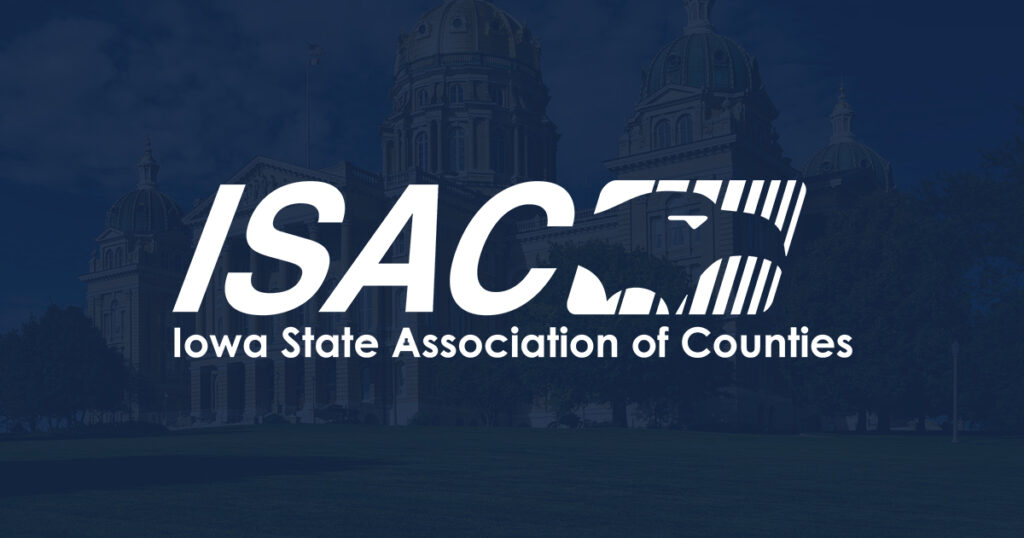A Closer Look: R. Michael Hayes
Shareholder, Belin McCormick P.C.

Michael Hayes joined Belin McCormick P.C. in October 2011. He specializes in real estate law, with experience in both the private and public sectors. At the end of 2009, he retired from Hubbell Realty Co., where he had served as in-house counsel for more than 22 years. In the early 1980s, Hayes worked for the city of Des Moines as a city solicitor and played a significant role in helping to establish the downtown skywalk system and negotiating development agreements for major downtown projects. Belin actually recruited Hayes last spring, but he had to wait for five months before he could join the firm, which at the time was representing a client in a suit against Hubbell.
What inspired you initially to become an attorney?
My father was a professor of law at Drake Law School. I was fascinated by it. When I went to college, I had not set out to be a lawyer. But as I got to the end of undergraduate, I thought there was going to be a career in law and computer technology, and since I had some interest in both, I thought that would be an area to go into. I never wound up getting into the computer end of law, but that’s what led me to go to law school.
Was your city government experience what got you interested in real estate law?
Very much so. One of my first projects when I joined the city attorney’s office here in Des Moines was the formation of the skywalk system. It introduced me to a lot of the major business players, and it was a very exciting project to put together. Des Moines looked at what Minneapolis had done with an all-private system and what St. Paul had done with an all-public system, and we came up with a balance that was part public, part private.
Was developing the legal framework for the skywalk a challenge?
We had to sit down with the building code officials; they kept saying, “You’re connecting two buildings; you can’t do that under the building code.” They wanted to do it on a case-by-case basis and have us appeal it each time. We felt it was important to proactively find ways to implement this and to make it work, rather than have it be on a case-by-case basis. I also got involved in a lot of complex downtown urban renewal projects. That also was the big era, 1980-1986, before the Reagan tax act amendments, where you had a lot of tax-exempt financing for business development. So in those six years, I did a lot of financing for development.
How did you end up working for Hubbell Realty?
Because the Hubbells were involved in three different (downtown) projects, I became familiar with them and they became familiar with me, so (they hired me) when they felt they had evolved to the point where they needed in-house counsel. When their (family) trust came to an end in 1983, they sort of switched from being a trustee and conservator of property to being a developer. A lot of their buildings, particularly in the Riverpoint area south of downtown, were no longer economically functional, so they started looking at redevelopment.
What perspective does your public- and private-sector experience bring to the table?
When I was on the city side, I hadn’t been on the development side yet, but I still felt a lot of the city officials were not seeing the full picture because they weren’t appreciating how developers go about making their decisions. The city sometimes created some unrealistic expectations as to what could be done in development. And now that I’ve worked on the developer’s side … part of my work all along has been shaping public-private partnerships that further both private-sector interests and the city’s growth interests.
How do you view your role with Belin?
In many respects, my work as a transactional lawyer is much more on trying to solve problems before they get into court, trying to work out the financing, work out the agreements, work out the solutions – make something work, rather than have to pick up the pieces.
What are you passionate about outside of practicing law?
I’ve been passionate about education issues in the past, particularly when my kids were going through school. I’ve been an advocate for programs not only for the gifted students but that would raise academic expectations for all students. I’m active with Valley United Methodist Church in some of its service programs.











